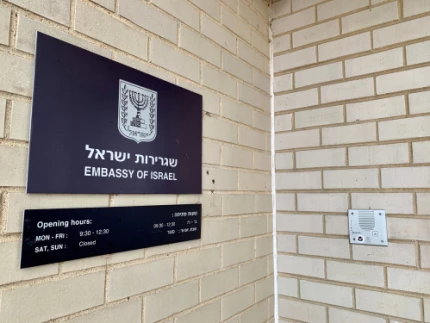Aliyah and The Jewish Agency Interview
Aliyah literally means “ascent.” The term is commonly used to refer to the process of emigrating to Israel. Although the routine was designed to be simple, comfortable, welcoming, and somewhat even warming, the reality can sometimes be more complicated.
an Israeli citizenship specialist
For this very reason, we’ve prepared this guide. Read on as we explain everything you need to know: how to apply, where to submit the documents, what questions to prepare for, what shadows to expect along the way, and much more.
How to schedule for your Aliyah interview
To ensure a smooth Aliyah process, it’s advisable to start the paperwork 8-10 months in advance by submitting the application through the official NBN website – you may do so here: nbn.org.il.
Upon submission, an advisor from Nefesh B’Nefesh (a non-profit organization that assists Jews in immigrating to Israel) will be assigned to guide you. Following the application, you then must upload the following documents – for yourself and each accompanying family member:
- A valid passport;
- Papers verifying Jewish heritage or conversion;
- Civil certificates with Apostilles: birth, marriage, divorce, and death ones;
- A criminal background check, valid for six months. Should be clear as well;
- Proof of residency abroad (requirements may vary)
Ensure all documentation is complete and accurately prepared to facilitate timely processing.
Aliyah Shaliah locations
The first step is to complete a joint online application through The Jewish Agency for Israel. A Shaliah (a local representative) will review your documents and meet with you to confirm eligibility.
And here’s a spreadsheet of locations – we’ve compiled as much relevant information as possible – just in one place:
| Destination
|
Adress
|
Contact details
|
Is responsible for |
| New York, New York
|
633 Third Ave, New York, NY 10017 212-339-6000 |
1-866-835-0430 [email protected]; appointments are arranged through the Global Center |
New York, New Jersey, New England States, Eastern Pennsylvania (Philadelphia and surrounding area), Delaware |
| Davie, Florida
|
5890 S Pine Island Rd, Davie, FL 33328 | 1-305-438-4203 [email protected], contact with Samantha Lerman |
Florida, Georgia, Alabama, the Carolinas, Tennessee, Mississippi, Arkansas, Louisiana |
| Chicago, Illinois
|
10 South Riverside Plaza, Suite 875, Chicago, IL, 60606 | 1-312-474-5767 [email protected] |
Illinois, Michigan, Ohio, Indiana, Western Pennsylvania (Pittsburgh and surrounding area), Kentucky, Missouri, Minnesota, Iowa, Wisconsin, the Dakotas, Nebraska, Kansas |
| Los Angeles, California
|
6505 Wilshire Blvd, Los Angeles, CA 90048 | 1-323-658-7302 [email protected] |
California, Nevada, Arizona, Utah, Oklahoma, Texas, Colorado, New Mexico, Hawaii, Washington, Oregon, Alaska, Wyoming, Montana |
| Toronto, Canada
|
4600 Bathurst St, Toronto, ON M2R 3V3 | 1-416-633-4766 [email protected] |
|
| London, UK
|
Central House, 1 Ballard’s Lane, London N3 1LQ | 0800-085-2105 [email protected] |
|
| Manchester, UK
|
72 Singleton Rd, Salford, Manchester M7 4LU | 0800-085-2105 [email protected] |
|
| Israel
|
Ha’Askan 3, Jerusalem, Israel | 1-800-228-055 [email protected] |
What questions to expect during the interview?
It’s important to remember that the role of every interviewer is to determine whether an applicant genuinely intends to move to Israel for legitimate reasons or if the decision is driven by frivolous or self-serving motives.
As a result, the questions are designed to uncover the true intentions. During the conversation, one of the main topics will focus on the applicant’s plans for life after relocation. This includes discussing which city they intend to live in, what job opportunities they are pursuing, and whether buying property is part of their plan, or not at all.
The thing is, you don’t have to be a Hebrew speaker to apply, but if you say that you’re interested in going to an Ulpan (a school for learning Hebrew and Jewish traditions), it’ll show how serious you are about Aliyah and give the interviewer more confidence when deciding your fate – here and now. Note that during the interview, you’ll have to present all the original documents you have already uploaded when first scheduling.
What happens after?
Upon review of the application, The Jewish Agency will tender its decision in accordance with the criteria established by the government.
Should further documentation be required, they shall duly inform you. And if the petition is granted, a missive, also known as the “Mazal Tov letter”, will alight in the e-mail provided earlier, guiding toward the next steps. The instructions on how to apply are in the letter we mentioned above. As for the time frame, it varies a lot. Thus, it depends on the time of year (summer months are usually busier) and where one lives. On the average, getting a visa can take 20 days or even more. Once you get the document, you may use it for the next six months – that’s how long it’ll be valid.
Lastly, the new repatriate will be provided with some benefits. For example, they’ll get a one-way ticket on a regular flight. As usual, the proper department will contact you to offer help with the application – they’ll usually call you using the number you provided before – when appointing the interview.
FAQ
Yes. One doesn’t have to pay for health insurance for the first six months after getting the Aliyah visa. And if he or she can’t find a job during this time and apply for a subsistence allowance, they’ll be exempt from payment again – for exactly the same period.
The “Aliyah Day” really do exist. It’s a holiday that was introduced relatively recently, nine years ago. It’s celebrated in October or November, yet without specific dates. During it, one can observe various thematic and entertaining events.
Yes, there’s indeed such a thing, but in the predominant part of cases it refers to so-called “golden citizenship” or “citizenship for investment”, when the document is acquired through financial means. This isn’t the case in Israel, so the answer to the question is “absolutely not.”
an Israeli citizenship specialist
